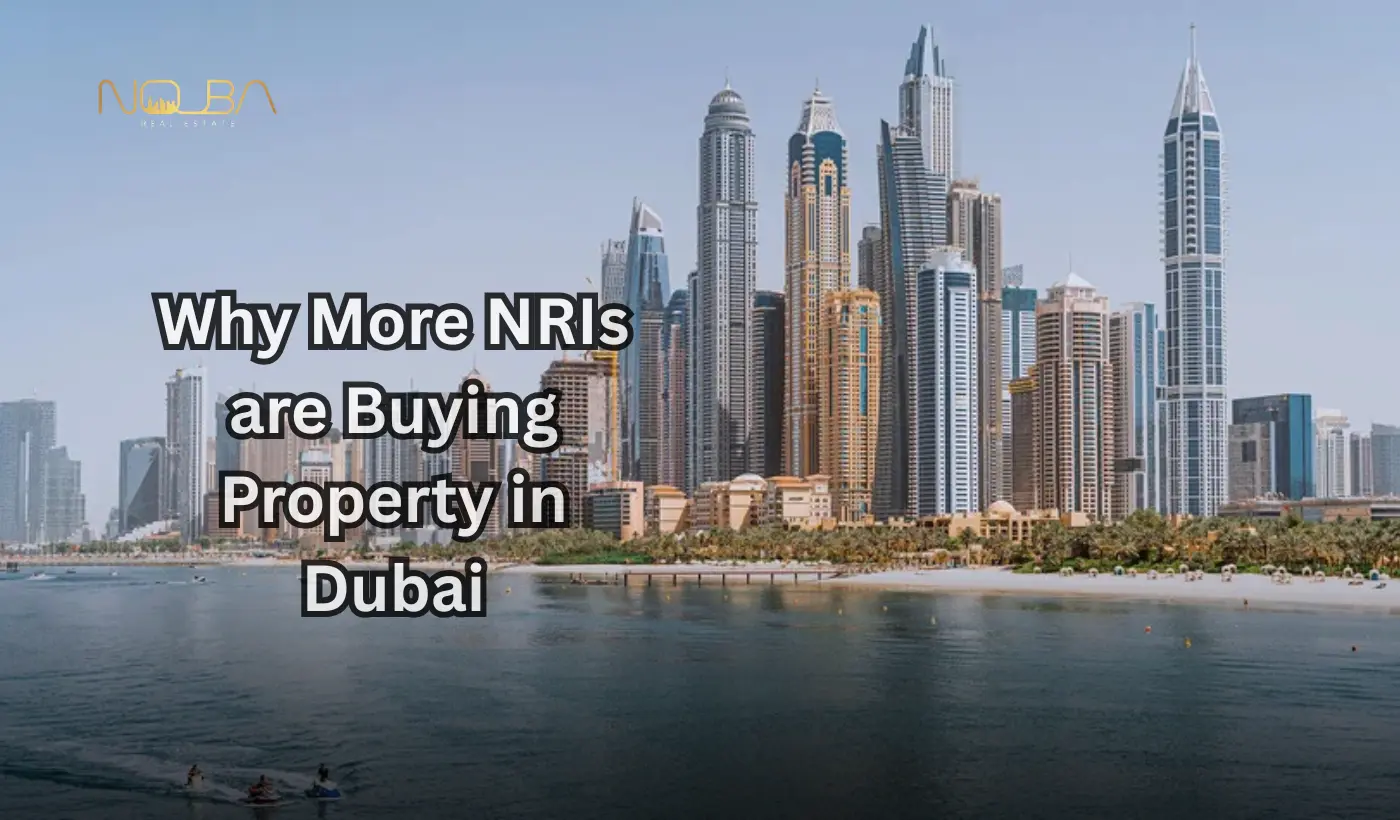How to Buy Property on Mortgage in Dubai: A Complete 2025 Guide
Dubai continues to attract both residents as well as international investors because of its strong Real Estate Market, tax-free returns, and world-class infrastructure.
If you are planning to buy property in Dubai but do not want to pay all the money upfront, taking out a mortgage can be a smart and flexible option.
In this guide, we will explain to you how to buy property on mortgage in Dubai in 2025, covering everything from eligibility and required documents to the types of mortgages available.
What Is a Mortgage and How It Works in Dubai
A mortgage is a loan you take from a bank or financial institution to buy a property. Instead of paying the money upfront, the buyer pays a down payment (usually 20-30%), and borrows the rest from the lender.
The loan is then paid in monthly installments, which includes both the loan amount as well as the interest. In Dubai, the property you buy acts as the security for the loan. This means that if you fail to make the payments, the bank has the right to take your property back.
Mortgages in Dubai are available not only from banks but also independent mortgage companies. Some have fixed interest rates while others have variable rates. There are also Islamic mortgages that don’t charge interest but involve profit-based systems.
Who Can Apply for a Mortgage in Dubai?
Both UAE residents and non-residents can apply for a mortgage in Dubai, but the requirements may slightly differ based on your residency status and employment.
Here are some of the basic eligibility criteria:
- You must be between 21 to 65 years of age (some banks also allow till 70 based on the lender and retirement age)
- A steady source of income. Salaried individuals may need a minimum monthly income of AED 10,000 to 15,000, while self employed individuals may need to earn AED 25,000 or more.
- You should be employed by a company or have a business running for at least 1-2 years.
- A good credit history is essential.
Types of Mortgages Available in Dubai
Dubai offers a variety of mortgage options to suit different buyers. Here are some of the main types:
Fixed rate Mortgage
With a fixed-rate mortgage, the interest rate stays the same throughout the loan period.
This means that your monthly payments will not change, which makes it easier to plan your budget. However, if market interest rates drop, you may end up paying more than necessary.
Variable rate Mortgage
In this type, the interest rate might change with market conditions, especially the Emirates Interbank Offered Rate (EIBOR).
You may benefit from lower monthly payments, if the rates go down but your payments could also rise if rates increase.
Islamic Mortgage
Islamic mortgages don’t charge interest, as per Islamic law. Instead the bank buys the property and sells it to you at a profit.
You pay the amount in agreed installments. It is a popular choice for those who are looking for interest-free financing.
Buy-to-let Mortgage
This mortgage is for investors who plan to rent out the property. The interest rates are usually higher, and the loan amount depends on the expected rental income.
Off-Plan Mortgage
Off-plan mortgages are used to buy properties that are still under construction. These mortgages often require a larger down payment and may come with higher interest rates.
Equity Release Mortgage
If you already own a property in Dubai, this option lets you borrow money against the property’s value. It is useful if you need cash for other investments or expenses without selling your home.
Required Documents for Mortgage Application
Here is a list of all the documents which are required for the mortgage application.
For Salaried Individuals
- Passport copy
- Emirates ID copy
- Valid UAE residence visa
- Salary certificate from your employer
- Last 6 months’ payslips
- Last 6 months’ personal bank statements
- DEWA bill or tenancy contract
- List of current loans (if any)
For Self-Employed Individuals
- Passport copy
- Emirates ID copy
- Trade license (valid)
- Memorandum of Association (MOA)
- Company profile
- Last 6 months’ personal bank statements
- Last 12 months’ company bank statements
- DEWA bill or tenancy contract
- List of existing loans (if any)
Having all your documents ready helps speed up the mortgage approval process. It’s also important to make sure that your bank statements show regular income and that your credit history is clear, as banks closely check these before offering a loan.
Step-by-Step Process to Get a Mortgage in Dubai
Getting a mortgage in Dubai may seem complicated, but following a clear process can make it easier. Here is a simple step by step guide:
Choose a lender or mortgage broker.
Start by deciding whether you want to approach a bank directly or work with a mortgage broker. A broker can help you compare different offers and find the best deal based on your income, credit history, and property type.
Select the right type of mortgage.
Then you need to decide which mortgage suits you best. Use a mortgage calculator to estimate your monthly payments and check your affordability.
Get a pre approval letter.
The lender will access your documents and financial status to issue a pre-approval letter. This confirms how much you borrow and shows that you are a serious buyer. It usually takes up to 3-5 working days and is valid for 60-90 days.
Find the Right Property.
With your pre approval letter in hand, start your property search. You can work with a real estate agent to help you find a home or investment property that fits your budget and lifestyle.
Finalize the Purchase Agreement.
Once you have chosen a property, you need to sign the sales agreement and pay a small deposit. The bank will then conduct a property valuation to confirm the property is worth the loan amount.
Get the mortgage approval.
After the valuation, the bank will complete its checks and issue a final loan approval. Once everything is sorted, the bank will release the loan amount to the seller.
Transfer ownership and register the mortgage.
The last step is to register the mortgage and transfer the property under your name at the Dubai Land Department (DLD). After this, you officially become the owner of the property.
Costs and Fees Involved in Getting a Mortgage
Before applying for a mortgage in Dubai, it’s important to understand all the costs involved. Here’s a breakdown of the common fees and upfront payments:
1. Down Payment
- 20% for properties under AED 5 million
- 30% for properties over AED 5 million
- Paid upfront and not included in the loan
2. Mortgage Registration Fee
- 0.25% of the loan amount
- Paid to the Dubai Land Department (DLD)
3. Property Valuation Fee
- A flat fee paid to the bank for valuing the property
- Usually between AED 2,500 to AED 5,000
4. Mortgage Processing Fee
- Charged by the lender for processing your loan
- Ranges between 1% to 2% of the loan amount
5. Late Payment Fee
If you miss a payment, you may be charged 3% to 6% of the unpaid instalment
6. Other Government Fees
- DLD Fee: 4% of the property value
- Trustee Fee: AED 4,200 (fixed)
- Title Deed Fee: AED 500 (fixed)
7. Additional Notes
As of February 1, 2025, buyers must pay all upfront fees themselves. These total around 6% to 7% of the property value and can no longer be covered by the mortgage loan.
Explore:
Top Property Finding Websites for Dubai
Top Ongoing Real Estate Projects in Dubai
Conclusion
Choosing to buy a property through a mortgage in Dubai is not just a financial decision, but a step forward to long-term stability, investment growth, and possible residency benefits.
While the process might seem technical, the right guidance and preparation can make it smooth and rewarding.
Always take your time to research, ask questions, and seek expert advice.
A property purchase is one of the biggest commitments you will make, and with the right mortgage plan, it can also become one of the best decisions of your life.







